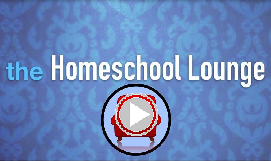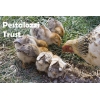BELA Act Guidelines: De-risked Home Education, for Now..
The Basic Education Laws Amendment (BELA) Act was fully implemented on 24 December 2024. A law that many feared could destroy Afrikaans schools and deter parents from choosing home education. In response, the Solidarity movement prepared for legal action. However, Minister Siviwe Gwarube promised to publish guidelines clarifying the law’s interpretation—guidelines that would address Solidarity’s objections. These were eventually published on 12 June 2025, and it appears they’ve achieved their aim: Solidarity has described the guidelines as a tactical victory.
(Read guidelines at https://www.education.gov.za/
Contentious bills (proposed laws) are often intentionally written in vague terms to allow for multiple interpretations. During parliamentary debate, opponents tend to criticize them based on a potentially harmful interpretation while supporters defend them based on a more benign one. Only once a bill is enacted and enforced does its true intention become clear.
What Do the Guidelines Say?
When the BELA Bill was debated, Solidarity described it as a means to destroy Afrikaans schools while supporters claimed its intention was to prevent racial exclusion. The guidelines express the support of the minister of an interpretation that rules out a malicious interpretation of the law. They will influence regulations, norms and standards and in the meantime offers Afrikaans schools protection from hostile enforcement.
Section 51 of the BELA Bill also introduced a system of compulsory, universal and conditional registration along with regular monitoring of home learners. The home education movement opposed this, arguing that restrictive registration conditions makes it difficult to educate their children according to their convictions and choose the type of education that is in the best interests of their children. Combined with possible unaffordable assessment costs could deter parents from choosing home education. Supporters, however, claimed that the intention was to hold irresponsible parents accountable to ensure their children’s right to education is fulfilled. Although the guidelines align with a stricter interpretation of Section 51, it also introduces procedural hurdles that make enforcement practically unworkable. The guidelines make it difficult for officials not only to decline home education applications, but also to prosecute parents who do not register.
As input to the guidelines, Cape Home Educators proposed an interpretation that allows for voluntary registration with contingency-based monitoring. This proposal acknowledges that registration serves as a formal state endorsement of a parent's decision to choose home education - something that is valuable to some families. Given the limited capacity of education departments, priority should be given to those who seek such endorsement through voluntary registration. In a way the guidelines do not provide de jure recognition of this proposal, but offer de facto support for it.
Effect of Homeschool Guidelines
The guidelines on Section 3 state :”Wherever possible, and pursuant to section 3(5) of the SA Schools Act, it is recommended that the Head of the relevant Provincial Education Department ensures that appropriate remedial steps are taken to ensure that children of compulsory school-going age are …, registered for home education ….” This places an obligation on provincial officials to take remedial steps to address the reasons that deter parents from registering. As a result, provincial officials will now have to address the very objections submitted to Parliament regarding unreasonable registration conditions.
The guidelines further state: “Charging a parent for failing to ensure their child …, is registered for home education … should only be pursued where this is supported by the facts and the parent does not have a just cause for such failure.” The implication is that parents who fail to register cannot be charged if they are willing to present reasonable objections to restrictive registration conditions. As long officials do not address the reasons why parents fail to register, it is lawful to remain unregistered.
The Way Forward
The guidelines have significantly de-risked home education. Parents that fail to register cannot be charged until their objections are addressed and can focus on their home education with peace of mind. However, there remains a small possibility that such parents may be required to justify their decision. Some parents would welcome the opportunity to engage with officials and explain their objections. For others, however, such engagement can be intimidating. These parents may benefit from the support of mediators who understand both home education and the law, and who can engage with officials on their behalf. Such mediators can clearly articulate the parents’ concerns and guide officials in implementing appropriate remedial actions. In this way, a refusal to register - paired with a willingness to negotiate the condition for registration conditions - can help to establish a better dispensation, child by child.
And a Bonus
Current discussions on home education are being muddied by the emergence of a new category: emergency home educators. These are parents who did not voluntarily choose home education, but were forced into it due to school placement issues. Such parents are typically not concerned with restrictive registration conditions, as they still prefer the school system.
The guidelines distinguishes between these parents and those who intentionally choose homeschooling for other reasons. They state: “Where parents apply for home education registration due to the unavailability of school placements, it is recommended that the relevant Provincial Education Department keeps a separate register of these parents and, wherever possible, assists them to enroll their learners.” This provision should relieve emergency homeschoolers of unnecessary bureaucracy, and allow focused discussions on registration conditions by families committed to homeschooling.
Can We Now Relax?
The guidelines clearly state that they can be withdrawn by the minister at any time. If the Government of National Unity (GNU) collapses and a new minister is appointed, the guidelines could be replaced with ones that support a different - and possible more hostile - interpretation of the BELA Act.
In this context, capitalizing on the current gains by participating in the drafting of regulations and working to entrench these protections may prove the most effective strategy for now.

Comments
Events
Legal & Research
Centres
Homeschool ABC
Support
Curriculums
British International Distance ...
We offer children in South Africa the opportunity to begin their ...
Elroi Academy (Gr 8 - 12)
Elroi Academy – Top-Rated Distance Education Provider in South ...
Has no content to show!































